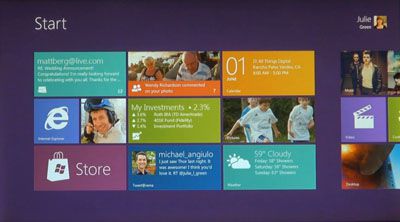Not sure why Extreme Tech felt that was a good opportunity for conjecture. Thinking hat washing day?
Microsoft has benefited greatly from piracy. Bill Gates himself first, and other prominent officials since then, have been saying so for years. The company wouldn't probably be what it is today if it was not for Microsoft operating systems ubiquity that was for a long time (up and well into windows 2000) significantly driven by piracy. I would say it was a 50-50 between OEM deals and piracy. The two main responsible parties for Microsoft ruling the world of operating systems.
Since then Microsoft has started several programs that give their products for free or at extreme discount prices; appealing licencing schemas, different SKOs for different markets, student and small business programs, etc, all have finally been taking a slice of that "piracy market" and returning to Microsoft the control of OS distribution worldwide. In addition, while not toughening the licensing methods, Microsoft has been creating parallel processes that remove the appeal from piracy. The most notable being Windows Genuine Advantage (now, Windows Activation Technologies).
This was, in my opinion, a smart move. Not imposing gargantuan anti-piracy measures, but making the pirated operating system less appealing by requesting that only a genuine copy can perform updates. Likewise, making the OS more affordable regardless how the user positions itself on this market. Microsoft understands, perhaps better than anyone due to its history, that piracy cannot be stopped and should in fact be cuddled to an extent. It guarantees a position on the market and future business, as the two quotes from Microsoft illustrate:
- "If they're going to pirate somebody, we want it to be us rather than somebody else."
- "We understand that in the long run the fundamental asset is the installed base of people who are using our products. What you hope to do over time is convert them to licensing the software."
Now, this isn't to say that Microsoft won't stop pursuing ways to end piracy. Of course that any company would like to see that
installed base above be composed entirely of legitimate licenses without that affecting their numbers. But instead of acting through damaging mechanisms like strongly enforced DRM policies, they wisely opted to not enter into a conflict with their users by slowly nudge them in the direction the company wishes to take them.
As an "old" company with a firmly established user base, Microsoft has all the time it needs. It can afford itself to develop schemes that don't try to solve the problem, but increasingly minimize it. And do so in any length of time. Similarly, an operating system doesn't behave as a game. It's not a temporary piece of software on the user machine and with a short shelf lifespan. For this reason, the company doesn't feel it is necessary to impose strong policies for an immediate return of their investment on the making of the product. (That investment is in fact already guaranteed by its business licensing schemas, alone!)
...
Now, to see someone like Extreme Tech, Lee Mathews, suggest Microsoft could aim for an always online validation schema doesn't make any sense. "Fast Boot" (I prefer Boot Streaming myself and I can afford to do that because currently there's no product, just the patent) is part of a much larger concept of a streaming OS; an operating system that can exist largely on the cloud. It's not a technology meant to be implemented on anything even close to Windows 8 mainstream. It targets essentially business licenses, where it can indeed be quite useful.
But there's very little doubt that it's quite possible that -- if the cloud technology matures and the internet infrastructure changes(!) -- cloud computing will become more ubiquitous and one day conquer the domestic market. If (or when) that happens, Streaming OSes then become a natural development. And always-online validation methodologies natural consequences. That's how it makes sense. Natural solutions, not out of the blue sledgehammers down the heads of a billion users.


